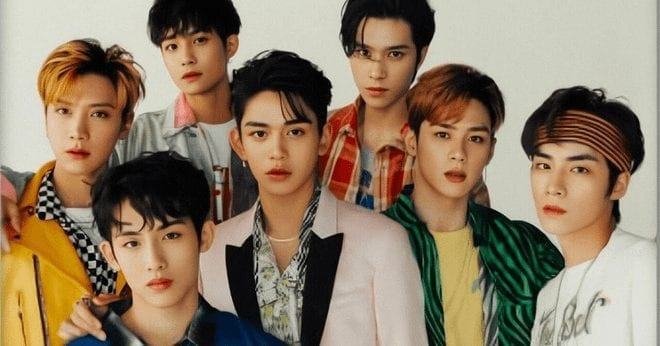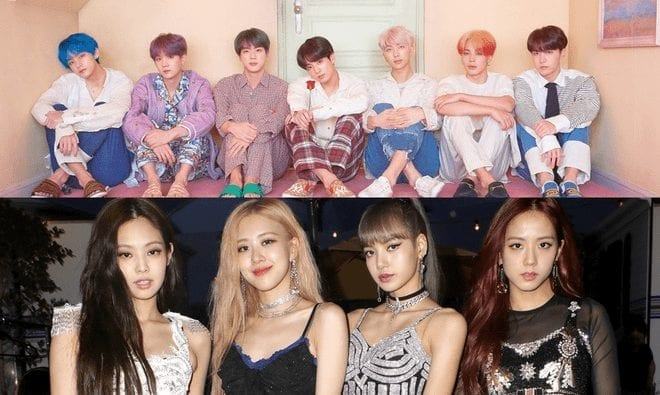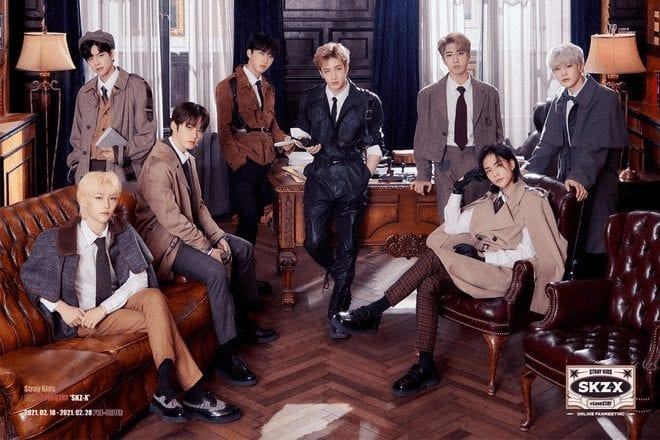Is K-pop ushering in a new generation? This is one of the most frequently asked questions by industry experts and their fans. The audience believes that rookie groups like ITZY and TXT have already brought in a new era. Others argue that the moment of generation change has yet to come as most of the 3rd generation famous groups – including BTS and BlackPink – are still going strong
4th Generation Kpop refers to groups that debuted in late 2018. They are more focused on the international market and dependent on digital platforms. In addition to ITZY or TXT, Stray Kids, (G) I-DLE, ENHYPEN, Treasure, ATEEZ, Everglow, and aespa are also classified in the 4th generation group.
TACTICS OF THE 4th GENERATION OF KPOP
In the past, most Kpop artists worked hard to gain a reputation in the domestic music industry before thinking about entering foreign markets. The stars today, however, are different. They set their sights on the global stage from the very beginning of their careers. In particular, since BTS broke into the US mainstream market, more and more rookie groups are trying to write their own history there.

TXT, a boy group debuted by Big Hit Entertainment in 2019, and JYP Entertainment’s girl group ITZY began promotional activities in the US shortly after their debut. ITZY also visited Indonesia along with other countries to promote its image and music. KQ Entertainment’s ATEEZ performed in North America only about four months after making its debut.
Choi Ha-rim, an editor of online K-pop magazine IDOLOGY, compared these stars to EXO, a third-generation group that targeted markets outside Korea from the start.
“Unlike the others, EXO resorted to a localization strategy from the beginning to permeate into the Chinese market by launching the sub-unit EXO-M that included four Chinese members,” Choi told The Korea Times. “But rookie singers these days are different ― they usually do not target one specific country or region, but try to embrace all.”
Therefore, some new groups like EVERGLOW are famous overseas, while they have not yet ascended to stardom in Korea. Their global popularity and achievements in international markets are helping the group spread its name in its home country.
The appearance of Kpop groups without Korean members is also noteworthy. Including foreign members in a band has been a widely used marketing strategy for K-pop labels to appeal to the fans in different regions, but now, they are taking a bolder approach: excluding all Koreans.

Last year, JYP released an all-Japanese girl group NiziU. Not long after, SM Entertainment debuted the Chinese group WayV. Some people questioned whether NiziU or WayV belonged to Kpop. But according to experts, the above groups are considered as “extended versions” of the existing Kpop groups.
4th generation Kpop groups also have many platforms other than YouTube and Twitter to communicate with fans around the globe.
“Platforms like YouTube have been used as communication tools for quite a long time, but today, there are more fan platforms like Weverse, Lysn, and Universe,” Choi said. “Some of them even offer a one-on-one messenger service between a star and a follower, helping them boost interaction.”
CHALLENGES FOR THE NEW GENERATION
As defined by some experts, the first generation of Kpop began in the late 1990s, with the appearance of famous artists such as HOT, S.E.S, SECHSKIES, and Fin.KL. These groups were hugely famous in Korea, but very few international audiences knew about them.
Still, there were some meaningful successes; H.O.T., for example, basked in popularity in China and BoA became the first Korean to top Japans’ biggest pop chart Oricon in 2002 with her first full-length album in Japan, “Listen to My Heart.” These are rare cases in the Kpop music industry at that time.
TVXQ, Super Junior, SNSD, KARA and Big Bang who debuted after 2004 are known as the leaders of the 2nd generation. They have expanded Kpop’s influence in the Japanese and Chinese markets.

The third-generation stars include BTS, BLACKPINK, EXO, TWICE, which have been making a splash beyond Asia. With the rise of platforms like YouTube, these singers have reached a global audience and built solid international fandoms.
Now, the latest generation artists want to make their own mark, aiming for a higher goal. But critics point out that, to meet the public’s expectations, they should be more culturally sensitive and mentally strong.
In fact, dozens of K-pop stars were recently criticized for their cultural insensitivity. One of them is Monsta X’s I.M, who apologized on Feb. 15 after wearing a shirt with an Islamic phrase ― which is reportedly recited by Muslims during prayers ― in a promotional image for his upcoming solo album “Duality.” Some fans took offense, saying such a phrase should not be used for “aesthetic reasons.”

Music critic Cha Woo-jin said: “K-pop stars and the agencies need to understand the broader cultural and historical contexts now, considering how diverse K-pop fan bases are. For them to earn global recognition, they should be more prudent in creating their content.”
Cha Woo Jin also mentioned the mental health of celebrities. “Numerous K-pop singers previously revealed they are suffering from mental illnesses. But they may feel even more stress these days because they now have to prepare more content for various platforms and spend additional time communicating with their fans,” he said. “Therefore, not only the singers but also the companies should seek ways to better handle the stars’ condition.”
Cha Woo Jin advised e groups not to be overwhelmed by the achievements of their forerunners. He said: “Success is not all about topping the charts. The rookie singers should forge their own paths instead of trying to meet certain standards.”
Sources: zingnews
